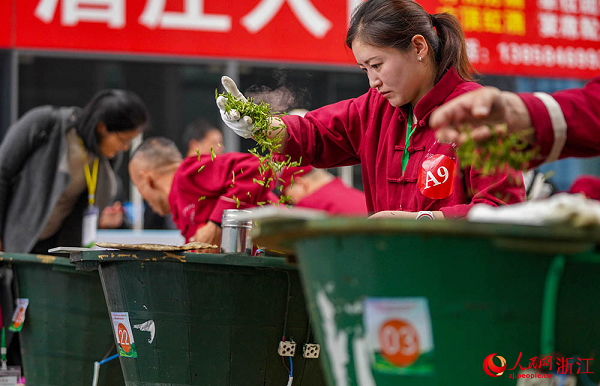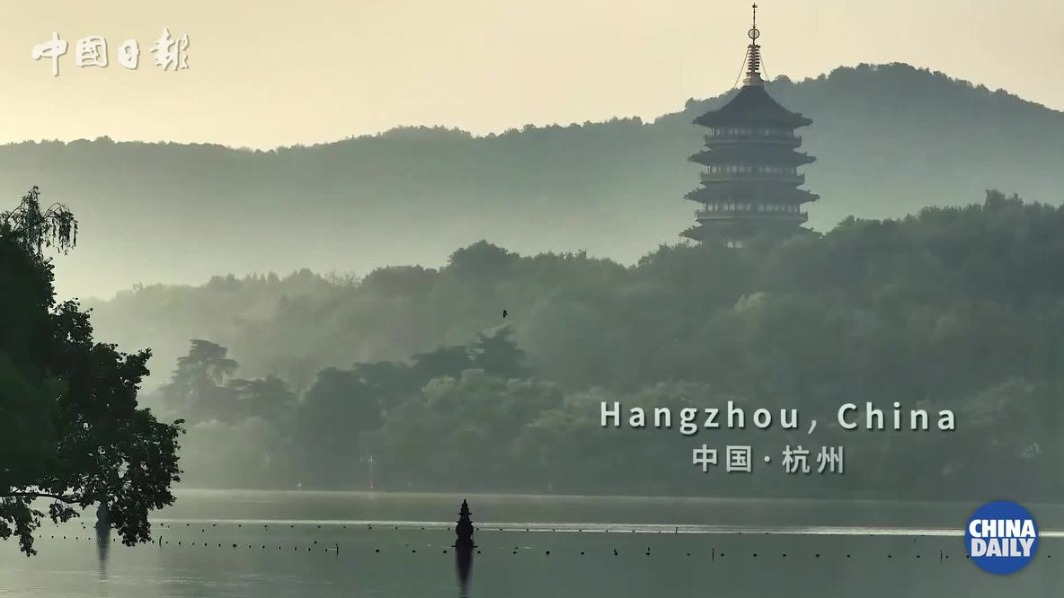traditional tea processing techniques well inherited in china
the item "traditional tea processing techniques and associated social practices in china," has been well inherited and revitalized across the country.
the item was added to the intangible cultural heritage list of the united nations educational, scientific, and cultural organization (unesco) in november 2022. it involves 44 chinese national tea-related intangible cultural heritages in 15 provinces and regions.
chinese tea producers have developed green, yellow, dark, white, oolong and black teas, as well as flower-scented teas by applying skills including enzyme inactivation, yellowing, piling, withering, leaves shaking and cooling, oxidation or fermentation, and scenting. there are over 2,000 tea products in china.
for instance, the techniques for making tieguanyin, a premium variety of chinese oolong tea in anxi county, southeast china's fujian province, involves 10 steps including outdoor withering, indoor withering, shaking, firing, rolling, and roasting, said wen wenxi, head of a center committed to teaching and inheriting the techniques recognized as a national intangible cultural heritage item.
there are over 40 vocational schools and more than 80 universities in china that have set up majors in tea science or tea culture. the country formulated and implemented a five-year protection plan (2021-2025) for traditional tea processing techniques and associated social practices in china. study tours featuring tea culture and the integration of tea with tourism have been promoted across the country. these inheritance efforts have injected new impetus into china's traditional tea-making skills.
anhui agricultural university (aau) in hefei, east china's anhui province has a state key laboratory of tea plant biology and utilization, and the university's high-tech agricultural park has a training center for processing tea leaves.
ning jingming, who has been teaching tea science at the university for over 20 years, said that the inscription of traditional tea processing techniques and associated social practices in china on unesco's intangible cultural heritage list further boosted the university's confidence in inheriting traditional tea-making skills and cultivating relevant talent.
wang wenli, a representative inheritor of the techniques for making tieguanyin, has focused his energies on the cultivation of young people in the past two years. wang has a tea garden designated for study tours for teachers and students. "we let young people embrace tea culture," wang said.

contestants roast tea leaves during a tea roasting competition held in shengzhou city, east china's zhejiang province, march 21, 2023. (people's daily online/zhang yongtao)
yu danhua, an inheritor of the techniques for making ninghong black tea in manjiang township, xiushui county, east china's jiangxi province, has been committed to passing on the craft for 40 years. yu built an intangible cultural heritage workshop to cultivate young people and pass on the techniques.
since ancient times, tea culture has blended into chinese people's lives. promotional activities have been launched across china to spread tea culture. for example, a jingshan tea ceremony, an intangible cultural heritage, was held in jingshan town, yuhang district in hangzhou, capital of east china's zhejiang province.
"the successful bid for china's traditional tea processing techniques and associated social practices has boosted our confidence in spreading tea culture and made many young people believe that tea culture is around them," said zhou chonglin, a tea culture scholar.
zhou said the popularity of having "stove-boiled tea" with friends, which is quickly becoming the latest lifestyle trend among young chinese people, is a fine example of spreading tea culture.
li lejun, president of a vocational training school in southwest china's yunnan province, has been engaged in tea-related vocational education for more than 10 years, and has trained over 20,000 students. so far, the school has offered seven tea-related courses online, attracting more than 70,000 learners.
"tea culture is a calling card for chinese culture," li said, adding that over 500 overseas students have graduated from the school and they returned to open chinese tea houses in countries including canada, the u.s., australia, and france, helping bring chinese culture to the world.
-
'nice' to meet you, hangzhou
may 6, 2024

